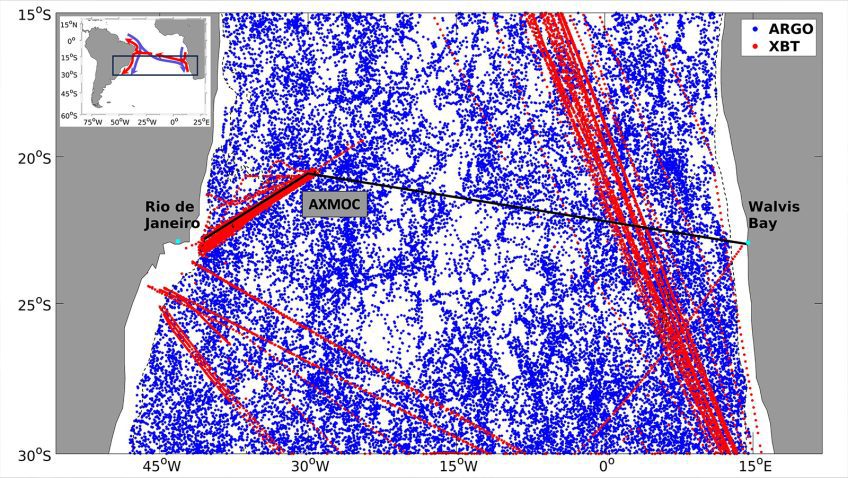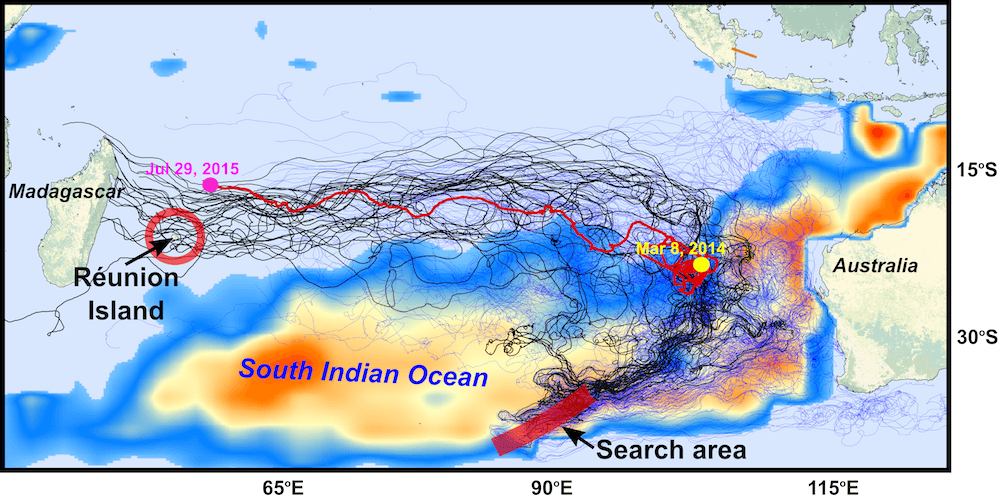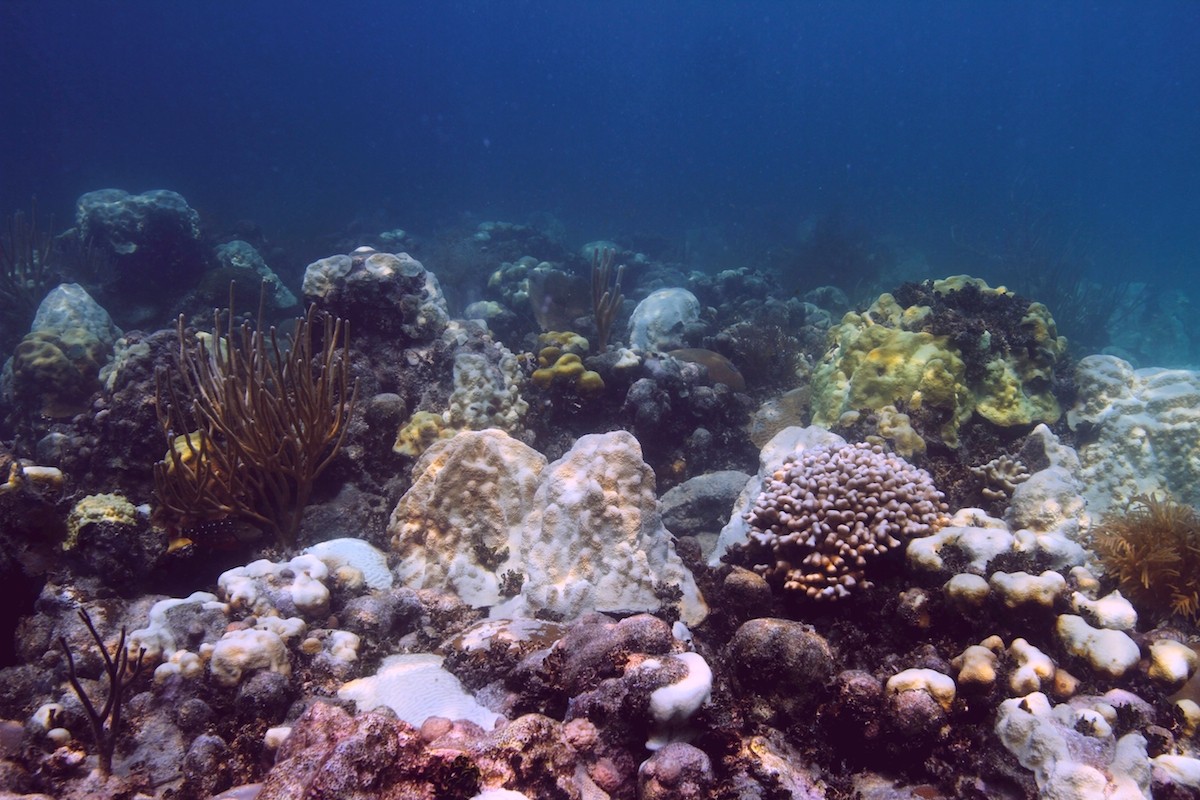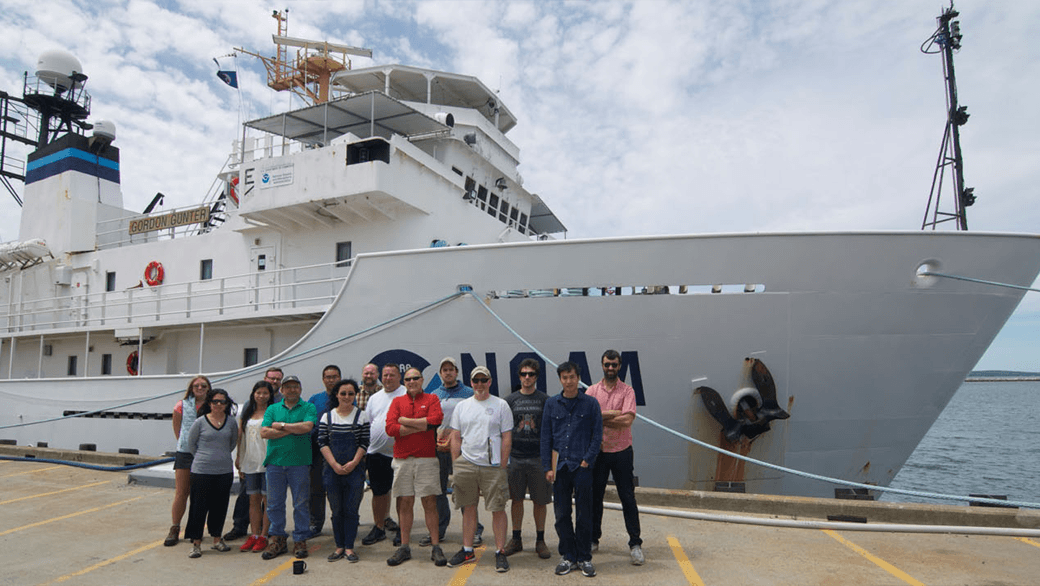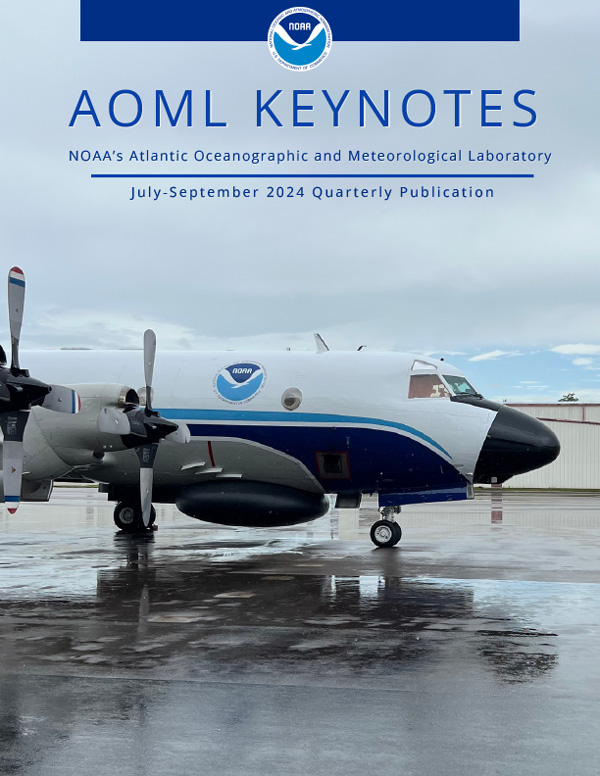New Mapping Method Uses Sustained Observations to Estimate AMOC at 22.5°S
Changes in the Atlantic Meridional Overturning Circulation (AMOC) and its transport of heat can affect climate and weather patterns, regional sea levels, and ecosystems. A new study led by Ivenis Pita, a University of Miami PhD student working at NOAA’s Atlantic Oceanographic and Meteorological Laboratory/ the Cooperative Institute of Marine and Atmospheric Studies (CIMAS), is the first to estimate the AMOC and heat transport at 22.5°S in the South Atlantic, demonstrating the importance of sustained in situ observations to monitor the state of the AMOC.
